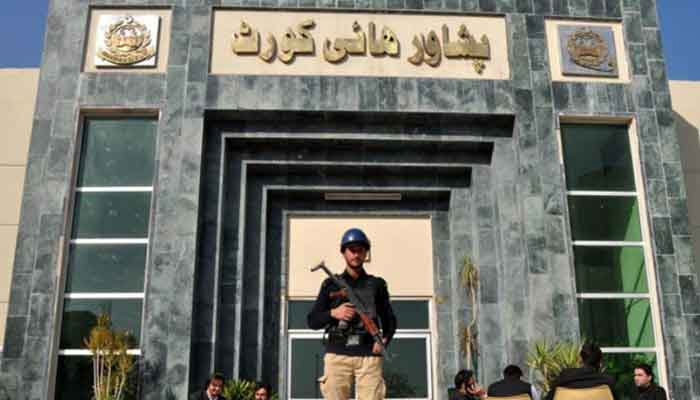PHC upholds increase in medical colleges fees
PESHAWAR: The Peshawar High Court (PHC) on Saturday dismissed a writ petition challenging a 100 percent increase in annual fees of medical colleges.
It ruled that the court could not interfere in university policy matters unless there was an abuse of authority or a violation of statutes.
A two-member bench comprising Justice Syed Arshad Ali and Justice Dr Khurshid Iqbal heard the joint petition filed by Muhammad Zulqarnain and 119 other petitioners.
Advocate Abdul Munim Khan represented Khyber Medical University (KMU), while a superintendent appeared on behalf of the Secretary Health Office.
The petitioners argued that they were students of KMU and its affiliated medical and dental colleges, admitted in MBBS and BDS programs for the sessions 2021, 2022, and 2023-24.
They claimed that in a 2021 meeting of the Provincial Admission Committee, chaired by the provincial ministers for health and finance, a substantial increase in annual fees was approved and later notified by KMU. Separate fee structures were set for open merit and self-finance categories.
Their counsel contended that the move violated Section 28 of the Khyber Pakhtunkhwa Universities Act, 2012, which authorized only the public sector university syndicate to approve fee hikes.
He argued that only a 10 percent increase was permissible, whereas the fees had been raised by over 100 percent, calling it a blatant injustice to students.
The university’s counsel informed the court that the provincial government and KMU set the admission policy, including the fee structure, for each academic session.
He stated that students were informed of the fees at the time of admission, which they accepted, and admissions were granted based on college policy and the official prospectus.
It was also informed that the fee hike - from Rs143,000 to Rs450,000 - was deliberated in a 2024 meeting of KMU’s Finance and Training Committee and presented at the university syndicate’s 44th meeting, after which it was formally notified in the admission policy.
After hearing both sides, the court issued a nine-page written judgment, stating that judicial intervention was only warranted when a university authority exceeded its powers or violated its statutes.
The court concluded that in this case, no such violation occurred and therefore dismissed the petition, upholding the government’s decision.
-
 ByteDance’s New AI Video Model ‘Seedance 2.0’ Goes Viral
ByteDance’s New AI Video Model ‘Seedance 2.0’ Goes Viral -
 Archaeologists Unearthed Possible Fragments Of Hannibal’s War Elephant In Spain
Archaeologists Unearthed Possible Fragments Of Hannibal’s War Elephant In Spain -
 Khloe Kardashian Reveals Why She Slapped Ex Tristan Thompson
Khloe Kardashian Reveals Why She Slapped Ex Tristan Thompson -
 ‘The Distance’ Song Mastermind, Late Greg Brown Receives Tributes
‘The Distance’ Song Mastermind, Late Greg Brown Receives Tributes -
 Taylor Armstrong Walks Back Remarks On Bad Bunny's Super Bowl Show
Taylor Armstrong Walks Back Remarks On Bad Bunny's Super Bowl Show -
 James Van Der Beek's Impact Post Death With Bowel Cancer On The Rise
James Van Der Beek's Impact Post Death With Bowel Cancer On The Rise -
 Pal Exposes Sarah Ferguson’s Plans For Her New Home, Settling Down And Post-Andrew Life
Pal Exposes Sarah Ferguson’s Plans For Her New Home, Settling Down And Post-Andrew Life -
 Blake Lively, Justin Baldoni At Odds With Each Other Over Settlement
Blake Lively, Justin Baldoni At Odds With Each Other Over Settlement -
 Thomas Tuchel Set For England Contract Extension Through Euro 2028
Thomas Tuchel Set For England Contract Extension Through Euro 2028 -
 South Korea Ex-interior Minister Jailed For 7 Years In Martial Law Case
South Korea Ex-interior Minister Jailed For 7 Years In Martial Law Case -
 UK Economy Shows Modest Growth Of 0.1% Amid Ongoing Budget Uncertainty
UK Economy Shows Modest Growth Of 0.1% Amid Ongoing Budget Uncertainty -
 James Van Der Beek's Family Received Strong Financial Help From Actor's Fans
James Van Der Beek's Family Received Strong Financial Help From Actor's Fans -
 Alfonso Ribeiro Vows To Be James Van Der Beek Daughter Godfather
Alfonso Ribeiro Vows To Be James Van Der Beek Daughter Godfather -
 Elon Musk Unveils X Money Beta: ‘Game Changer’ For Digital Payments?
Elon Musk Unveils X Money Beta: ‘Game Changer’ For Digital Payments? -
 Katie Holmes Reacts To James Van Der Beek's Tragic Death: 'I Mourn This Loss'
Katie Holmes Reacts To James Van Der Beek's Tragic Death: 'I Mourn This Loss' -
 Bella Hadid Talks About Suffering From Lyme Disease
Bella Hadid Talks About Suffering From Lyme Disease




